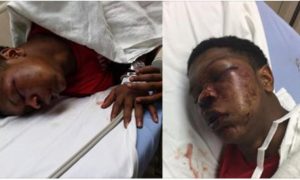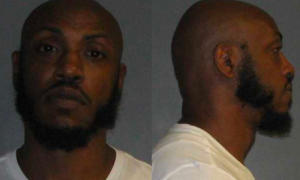Governor Jay Nixon declared a state of emergency in Missouri on Monday, in anticipation of the public response to a grand jury decision about whether Ferguson Police Officer Darren Wilson will be charged in the August 9 killing of unarmed black teenager Michael Brown.
Citing the “possibility of expanded unrest,” Nixon announced that the Missouri State Highway Patrol, the St. Louis County Police Department, and the St. Louis Metropolitan Police Department would operate together as a “Unified Command” to keep the peace in the event that the findings of the investigation provoke further violence in Ferguson and St. Louis.
He also mobilized the National Guard and any reserve officers into active service, and specified that this Unified Command could expand to other jurisdictions to protect civil rights and public safety. This means that even though there are 90 municipalities in St. Louis County, the Unified Command would have equal authority in all of them (as opposed to individual police forces claiming authority over individual towns.)
Legal experts say that the move, while unusual, could help Nixon maintain a sense of order if the protests lead to the sort of tumult that followed the days and weeks after Brown’s August death. “You’ve got all these various civil authorities, but they’re not in any way a unified command structure,” says Michael Wolff, Dean of the Saint Louis University School of Law and former chief justice of the Missouri Supreme Court. He also noted that this may help avoid repeating the mistakes made in the the police’s response to the initial Ferguson protests, which “showed poor command structure, and poor discipline.”
“If there is unrest, he won’t be coming late to what’s going on,” says Peter Joy, a law professor at Washington University in St. Louis. “And it’s a signal that if there is violence, there will be a coordinated response.”
Many protesters have been trying to plan a coordinated response in the event that Wilson is not charged. The possibility that the grand jury would not deliver an indictment and the fears about what could result have led to heightened tensions in the St. Louis region, as Kristina Sauerwein reported for TIME.
At the Metro Shooting Supplies gun shop in Bridgeton, the sense of threat has driven record sales, including more than 100 handguns and other weapons sold over a three-day stretch ending last Sunday. Shooting lessons are booked through 2015. “You can literally see the fear in people’s eyes,” says owner Steve King. “People are anticipating far worse than last time.”
Most groups are emphasizing a nonviolent response, but Nixon’s declaration of a state of emergency underscores the potential worst case scenarios. Nixon’s office did not immediately respond to requests for comment.
“If there are peaceful protests as a result of whatever the decision is, then it’s a better-safe-than-sorry situation,” Joy says. “I hope in hindsight this is looked at as a precaution that didn’t end up being necessary.”
Source: Time

















































































































































































































































![[Video] Chicago Police Officers Caught On Video Telling Two Black Men "We Kill Mother F**kers"](https://earhustle411.com/wp-content/uploads/2018/07/evil-cop-3-300x180.jpg)
![[Video] Chicago Police Officers Caught On Video Telling Two Black Men "We Kill Mother F**kers"](https://earhustle411.com/wp-content/uploads/2018/07/evil-cop-3-80x80.jpg)












![[Video] White Woman Calls The Cops On Black Real Estate Investor, Cops Threaten To Arrest Her For Harassing Him](https://earhustle411.com/wp-content/uploads/2018/05/nosy-neighbor-300x180.png)
![[Video] White Woman Calls The Cops On Black Real Estate Investor, Cops Threaten To Arrest Her For Harassing Him](https://earhustle411.com/wp-content/uploads/2018/05/nosy-neighbor-80x80.png)


![White Scientist Says The Black Community Is Being Targeted By The Medical System, They Are Deliberatly Being Poisoned [Video]](https://earhustle411.com/wp-content/uploads/2016/05/mike-adams-300x180.jpg)
![White Scientist Says The Black Community Is Being Targeted By The Medical System, They Are Deliberatly Being Poisoned [Video]](https://earhustle411.com/wp-content/uploads/2016/05/mike-adams-80x80.jpg)








![Teenage Girl Shot In Her Stomach Three Times But Took Time To Post To Facebook [ Video]](https://earhustle411.com/wp-content/uploads/2016/02/Gangster-chick-300x180.jpg)
![Teenage Girl Shot In Her Stomach Three Times But Took Time To Post To Facebook [ Video]](https://earhustle411.com/wp-content/uploads/2016/02/Gangster-chick-80x80.jpg)







